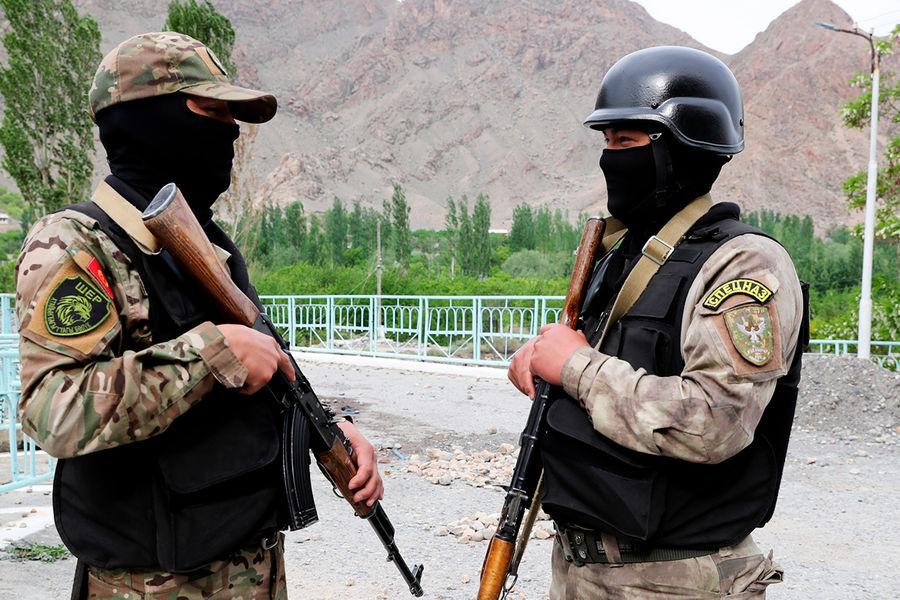Why did hostilities flare up in Tajikistan? Caliber.Az interview with Denis Berdakov
Caliber.Az’s interview with the head of the “Elchi” Institute of Socio-Political Research (Kyrgyzstan), an expert on Central Asia, political scientist, Denis Berdakov.
- On May 18, some armed local residents blocked the Dushanbe-Kulma highway connecting Tajikistan with China. In response, the Tajik security forces launched an anti-terror operation in the region. The Tajik authorities see a "foreign trace" in the ongoing events. It is reported that participants in the Badakhshan protests receive weapons and ammunition from international terrorist organizations. In addition, according to law enforcement agencies, there are foreign mercenaries in the region. What is happening in Tajikistan?
- In Tajikistan, there is a social revolt, superimposed on the fact that a rather autonomous population lives in mountainous Badakhshan, which differs from the majority of the population of Tajikistan in terms of ethnic, linguistic, and cultural characteristics. This is a certain enclave that occupies a huge high-mountainous part of Tajikistan, about one-third of the territory. Despite the large territory, approximately 270,000-300,000 people live there. That is, there is a small isolated enclave.
In recent years, the standard of living of the population of Tajikistan has been falling, the country faces very high inflation. Due to the drought, there are serious problems with agriculture. In general, this problem is inherent in the entire region of Central Asia, but in mountainous Badakhshan, the echoes of the civil war and the fact that the government fails to build a full-fledged high-quality socio-economic policy in the country are superimposed on this. That is, in principle, there is development, but there is a very strong demographic growth. On average, one woman has 3-4 children. This creates a very high demographic pressure, in which the only way out is the export of labour. In other words, the state system cannot cope with such rapid demographic growth.
It is easier for Dushanbe to strengthen the security forces and with their help resolve any civil social contradictions that arise in society. It didn't end well 30 years ago, and it won't end well now. We see that there is de facto partial autonomy of the region, but it is being systematically destroyed. Many do not like this, especially in the context of the fact that Dushanbe cannot provide really significant social assistance, for example, high wages to state employees or the launch of large-scale infrastructure programs, providing jobs.

- Can Tajikistan ask for help from the CSTO (the Collective Security Treaty Organization) as Kazakhstan did before?
- Formally, it can, although the events taking place there is an internal conflict, not an external threat. The search for the abstract word "terrorist" in the Gorno-Badakhshan Autonomous Region (GBAO) is groundless. Recently, terrorism has generally become an abstract concept. On the territory of the CIS (Commonwealth of Independent States), everyone is recorded as a terrorist, starting from real extremists and terrorists, religious radicals, and often quite moderate, outspoken oppositionists, and simply all those who go to rallies even on social problems. In Central Asia, all those whom the authorities are not happy with have long been labelled as extremists. And it's really hard to figure it out.
- Some experts do not rule out that among the civilians, there could be people or groups with ties to Afghanistan. Do you agree with this opinion?
- Perhaps they had some kind of connection, although a significant part of the Tajik society in Tajikistan has a more frank connection with the Tajik speaking ethnic groups in Afghanistan. There is a much larger connection between them. We are talking about the millions of ethnic Tajiks living in Afghanistan. According to some estimates, there are many more of them than in Tajikistan itself. This connection is much more powerful and plays a big role in destabilizing the region. That is, it turns out that the Tajiks are a divided people, most of whom live in Afghanistan. This is a significant problem for the entire CA region.
- Did the Kazakh scenario take place in Tajikistan?
- No, this is an absolutely old rooted conflict, which is multiplied by the poverty and poverty of the state.
The protesters were looking for justice, they wanted more autonomy, the observance of their rights, which the government of Tajikistan is not ready to do for several reasons, which, in fact, led to a permanent conflict.








